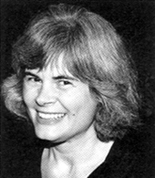 Today we were pleasantly reminded of the late Zen priest and author Darlene Cohen when we received a beautiful, two-volumed boxed set of The Noisiest Book Review in the Known World: The Best of RALPH: The Review of Arts, Literature, Philosophy and the Humanities, in which our Fall 2005 interview with Cohen is being reprinted. Cohen, who suffered from rheumatoid arthritis, wrote extensively on dealing with chronic pain, both physical and emotional. In her Q&A with Tricycle‘s features editor Andrew Cooper, her sharp wit really shines through. We thought we’d share a laugh by posting the brief interview in its entirety here:
Today we were pleasantly reminded of the late Zen priest and author Darlene Cohen when we received a beautiful, two-volumed boxed set of The Noisiest Book Review in the Known World: The Best of RALPH: The Review of Arts, Literature, Philosophy and the Humanities, in which our Fall 2005 interview with Cohen is being reprinted. Cohen, who suffered from rheumatoid arthritis, wrote extensively on dealing with chronic pain, both physical and emotional. In her Q&A with Tricycle‘s features editor Andrew Cooper, her sharp wit really shines through. We thought we’d share a laugh by posting the brief interview in its entirety here:
Can you share some of the benefits of chronic pain that you’ve discovered in your twenty-five years of dealing with rheumatoid arthritis? Nobody begrudges you even your most politically incorrect pleasures; conventional standards of social courtesy may be violated indiscriminately; you begin to be intensely grateful for the invention of things like spoons, footstools, and electric toothbrushes; and with minimum exertion, you can make able-bodied people who park in handicapped spots wish their parents had never met.
Name something you thought at the time was a cool insight but on later inspection turned out to be really dumb. People have told me for years how my pain is a gift, blessing me with insight, appreciation, gratitude, and wisdom. Frankly, I’d rather be superficial.
Does misery really love company? What misery really loves is a soft bed, a couple of really fluffy pillows, endless fragrant tea, docile attendants, competent help, comfortable but gorgeous underwear, flannel clothes, gentle caresses from people who know how to keep their mouths shut, chocolate in an exhaustive variety of innovative forms, an obscenely extravagant vase of bedside flowers, expensive toilet paper, a young person neurotically attracted to Byronic illnesses but who is too shy to enter the sickroom so writes passionate love letters instead, dappled sunshine outside the window, soft lighting, hallucinogenic medicines, and a couple of Judy Davis videos.
Have you ever considered going to Lourdes? Actually, I have thought of visiting Lourdes, but for twenty-five years I have been wending my way through healing experiences in the Bay Area. At Harbin Hot Springs I was spontaneously, albeit temporarily, healed by observing a constellation of penises bobbing in the warm water. I immediately lost interest in Lourdes. Besides, one could take a nasty fall over all those abandoned crutches.
As a Buddhist priest, which do you find to be the more salutary, misery or agony? Agony, of course, is more dramatic. Not only can you describe horrendous circumstances to your friends without fear of interruption, but you can also write it down in books, and people will thank you for suffering so that they can have the experience vicariously. Misery is another story. People avoid us miserable ones, possibly tired of the complaining, the twisted features, the special diets. As a Zen priest, the basic thing that has been helpful to me is other people’s misery. It makes them willing to come keep me company.
How come you never hear about anyone getting enlightened while receiving a nice relaxing massage? Actually masseurs and masseuses tell us this all the time, and it’s absolutely true. You do get enlightened from having a relaxing massage. But just as Dogen wrote in “Only Buddha and Buddha,” (though he was not exactly addressing the post-massage experience), we don’t realize that the very next moment (when you put your clothes back on) is enlightenment too.
The Noisest Book Review in the Known World, edited by Lolita Lark, will be published on January 13. You can preorder a copy and receive a discount by sending in a check (so old school) here.